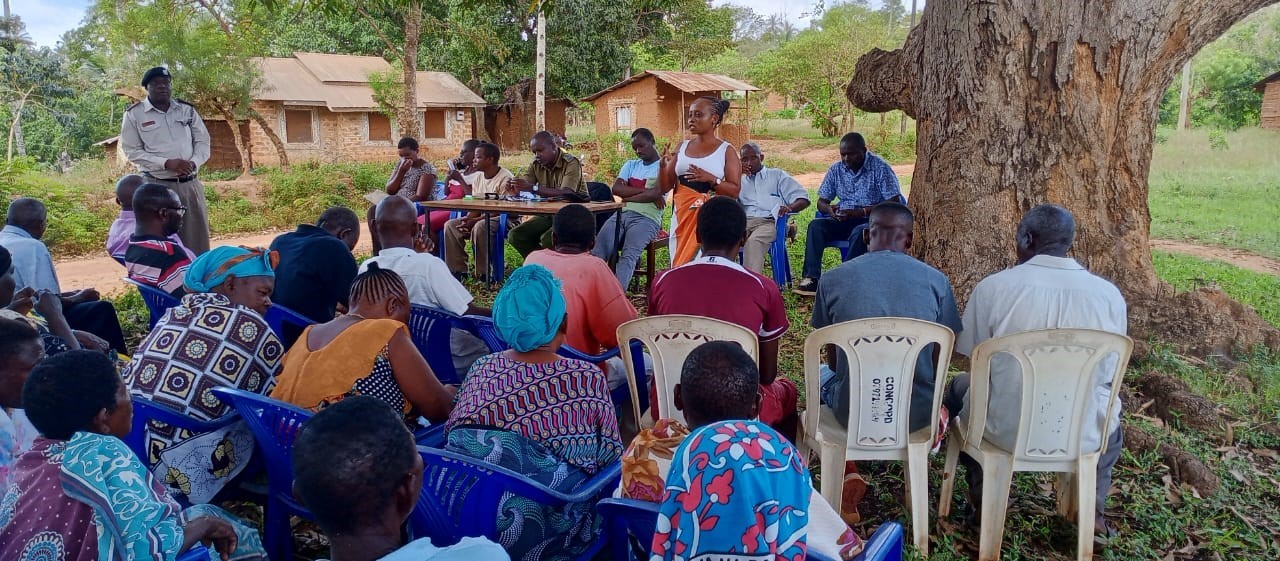As dust settles on the release of the Mandera chiefs by Al-Shabaab terrorist group, focus shifts to the role of elders in the fight against violent extremism and terrorism. Media has been awash with reports that the elders were part of the team that successfully negotiated the release of the chiefs from the brutal hands of terrorists. Within security circles, elders are considered first line of defense in the fight against terrorism and other crimes. They work closely with chiefs and security officers from the security agencies to manage security in their areas of jurisdiction. This explains why the elders in Mandera were directly involved in negotiating the release of chiefs from captivity to continue serving the community. They felt that the chiefs had served the people diligently hence it was time to return the favor in line with quid pro quo principle.
Through the support and blessing of governments of Kenya and Somalia, the elders successfully secured the release of the chiefs, which is no mean feat bearing in mind that Al-Shabaab is infamous for committing atrocities against innocent people. The unfortunate abduction incident gives the two friendly nations more reasons to enhance collaboration in the fight against terrorism especially through sharing intelligence on activities of Al-Shabaab to degrade its threat in the region. Owing to the fact that terrorism is a transitional threat, other nations need to support this fight so that the terrorists do not continue using Somalia as safe haven to operate from to carry out terror attacks at their home country and abroad.
The abduction of chiefs came at a time when the government is empowering the administrators through various interventions to deal with security threats like terrorism at the grassroots level. One such strategic policy action is the newly formed National Government Administration Police Unit (NGAPU), which will among other things support NGAOs to enhance security during high-risk operations, assist to resolve conflicts and promote peace. The National Police Service (NPS) is finalizing assigning police officers to chiefs to bolster their operations in their areas of jurisdictions.
Government considers elders as greatest assets who comes in handy in governance and assisting in maintaining law and order. They assist in relaying state policies to the people and working with security agencies to manage security in their areas. Most of these issues are articulated during barazas either convened by chiefs or village elders. It is such little efforts by the elders that resolve conflicts and promotes peace, harmony and development across the country. The fact that the elders come from local communities give them a good understanding of local terrain, security situation, crime trends and other social dynamics, that is critical in security management. They are also people of good standing in society to inspire confidence and offer the requisite leadership to safeguard community and national interests. These senior citizens are repositories of history, culture and knowledge, which they pass from one generation to another for continuity and maintenance of social order.
In regions mostly affected by terrorism like Mandera, elders are at the forefront fighting terror through sharing Al-Shabaab activities including youth radicalization and recruitment, planned attacks, terrorism financing and leadership structure of the terror group, to enable security agencies infiltrate the group to deter attacks. It is such collaboration efforts that makes security agencies steps ahead of the terrorists resulting to reduction of terror attacks in the country.
As government eyes and ears across the country, the elders are key pillars in most security strategies implemented to make the country safe and secure. For instance, at the height of terror attacks in the country, the government rolled out the Nyumba Kumi Initiative to anchor community policing at grassroots level, household level, market, estate, village and so on. Through the programme, citizens are able to know their neighbors in order to spot criminals and suspicious activities within their vicinity. The security initiative is largely successful due to close collaboration between Nyumba Kumi ambassadors (mabalozi), elders, chiefs and security agencies. Kenyans continues to utilize Nyumba Kumi structures to share information on criminal activities which enables security agencies for action.
In recognition of critical role of elders, the Ministry of Interior has proposed the National Government Coordination (Amendment) Bill to recognize villager elders as part of National Government Administration Officers (NGAOs) to assist chiefs in their work. As part of these far reaching changes to empower village elders, the government has recommended a monthly stipend of about Sh7, 000 to appreciate them for their contribution to security management and conflict resolution in the country. Additionally, the Draft National Government Village Administration Policy is already undergoing public participation to entrench the elders in government’s security architecture. The policy seeks to build a structured village administration system, gazette villages and create eligibility criteria for elders. Some of the proposed roles for village elders include to maintain incident registers replica of police occurrence book, promote peace and act as liaison with government agencies.
There is need to continuously empower chiefs and elders to lead community efforts in working with security agencies to fight terrorism to make Kenya safe. The abduction of chiefs by Al-Shabaab should not dampen our spirit to fight terrorists but should instead embolden us more to join hands to defeat the enemy. The fight against terrorism is too important to be left to government alone as it affects us all directly or indirectly.
